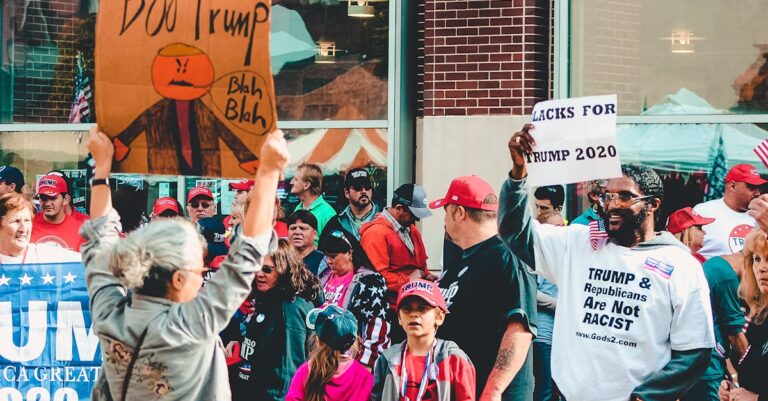
In the realm of politics, few issues carry as much weight and significance as voting rights. The right to vote is not only a fundamental pillar of democracy but also a cornerstone of civic engagement and empowerment. However, the concept of voting rights is often riddled with complexities and controversies, especially when we delve into the intricate web of politics, county dynamics, and statistical analysis within regions like Flagler.
Flagler, a county in the state of Florida, is no stranger to the heated debates surrounding voting rights. With its diverse population and unique political landscape, the county serves as a microcosm of the larger national discourse on who should have the right to vote and how that right should be exercised.
At the heart of the arguments surrounding voting rights in Flagler is the issue of access. Proponents of expanded voting rights argue that all eligible citizens should have easy and equitable access to the voting process. This includes measures such as early voting, mail-in voting, and accessible polling locations to ensure that everyone can participate in the democratic process.
On the other hand, opponents often raise concerns about potential voter fraud and the integrity of the electoral system. They argue for stricter voter identification laws and limitations on certain voting practices to safeguard against electoral malpractice. This tension between access and security lies at the crux of many debates around voting rights in Flagler and beyond.
When delving into the statistical landscape of voting rights in Flagler, a nuanced picture emerges. Data on voter turnout, demographic voting patterns, and disparities in access to voting resources can provide valuable insights into the state of voting rights in the county. By analyzing these statistics, policymakers and advocates can identify areas for improvement and tailor strategies to ensure that voting rights are upheld for all residents of Flagler.
Moreover, the intersection of politics and voting rights cannot be overlooked. Political affiliations, campaign strategies, and power dynamics all play a significant role in shaping the discourse around voting rights in Flagler. Partisan divides and electoral strategies often influence the policies and practices that determine who can vote, when they can vote, and how their votes are counted.
As we navigate the complex terrain of voting rights in Flagler, it is essential to remember the fundamental principles at stake. Every voice matters in a democracy, and protecting the right to vote is paramount to upholding the values of fairness and representation. By engaging in constructive dialogue, informed analysis of statistics, and a nuanced understanding of the political landscape, we can work towards a more inclusive and equitable voting system in Flagler and beyond.
In conclusion, the arguments surrounding voting rights in Flagler are indeed mind-boggling, but they are also illuminating. By delving into the intricacies of politics, county dynamics, and statistical trends, we gain a better understanding of the challenges and opportunities that lie ahead in the realm of voting rights. With continued advocacy, research, and dialogue, we can pave the way for a more robust and resilient democratic process in Flagler County and beyond.







Votin’ rights is super important in Flagler, Florida. Every citizen should have good access to votin’, ya know? But then there’s all this talk about
votin rightts arr impertent in flagler! we gotta make shure evryone can voice their opinyuns and have thar votes count. but we gotta watch out for bad stuff like voter phraud too. its a tricky balance between access and security. we need to look at the stats and
Woooooow, politics and voting rights, who knew it was so complicated, am I right? It’s like, can’t we all just get along and vote in peace? But hey, gotta love those statistical insights and nuanced political landscapes in Flagler, keeping us on our toes! K
voting is so importnt cuz it gives us a voice in how things are run but sumtimes its so hard to make sure
Haha, talkin’ ’bout voting rights like it’s a big ol’ puzzle to solve! But hey, democracy ain’t supposed to be easy, right? Gotta make sure everyone gets a chance to have their say, even if it means wadin’ through all them statistics and political brouhaha. At the end of the day, we all just want a fair shake and a voice that
Wow, voting rights is such a big deal, ya know
Whoa, voting rights are super important, ya know? Everyone should be able to vote easily and fairly. But then there’s this whole thing about voter fraud and security, which is also valid. It’s like a big puzzle with pieces that need to fit together just right. And looking at all the stats and data can really help us understand
Wowza, this voting rights stuff is like a big ol’ puzzle with lots of pieces that don’t always fit together, ya know? It’s like trying to put a square peg in a round hole, but with politics and statistics and Flagler County thrown in the mix. But hey, at the end of the day, we gotta make sure everyone’s voice gets heard, so let’s keep on
Whoa, talkin’ about voting rights in Flagler got me feelin’ all political and stuff! It’s like a rollercoaster of debates and statistics, but hey, every voice counts, right?! Let’s make sure everyone gets to have their say in the fairest way possible. And hey, can we vote to
Wow! Voting rights in Flagler sound like a real hoot! I mean, who knew that statistical analysis and political dynamics could be so riv
Why evryone gotta make voting rights so hard huh? It’s like, can’t we all just get along and let everyone vote? I don’t get why some folks gotta be so worried about fraud and stuff. If people wanna vote, let
Well, isn’t it just riveting to see how voting rights in Flagler County are SO incredibly simple and straightforward? I
voting rights is super important because it’s like the backbone of democracy and stuff. we should totally make it easier for everyone to vote so that
voting rites iz super iportnt cuz like democracy nd stuff. but sum ppl say no cuz fraudd. but i think every
wow this is such an important topic to talk about. voting rights are like soooooo important for democracy and stuff. we all gotta have a say in things ya know? and like, we gotta make sure
Wow, voting rights are a big deal, huh? It’s like, so important for democracy and stuff.
Voting is so important, ya know? Everyone should have the chance to vote and
Voting rights in Flagler County, Florida, are such a crucial topic for our democracy. It’s like a big puzzle with so many different pieces that need to fit together just right for everything to work smoothly. I mean, everyone should have the